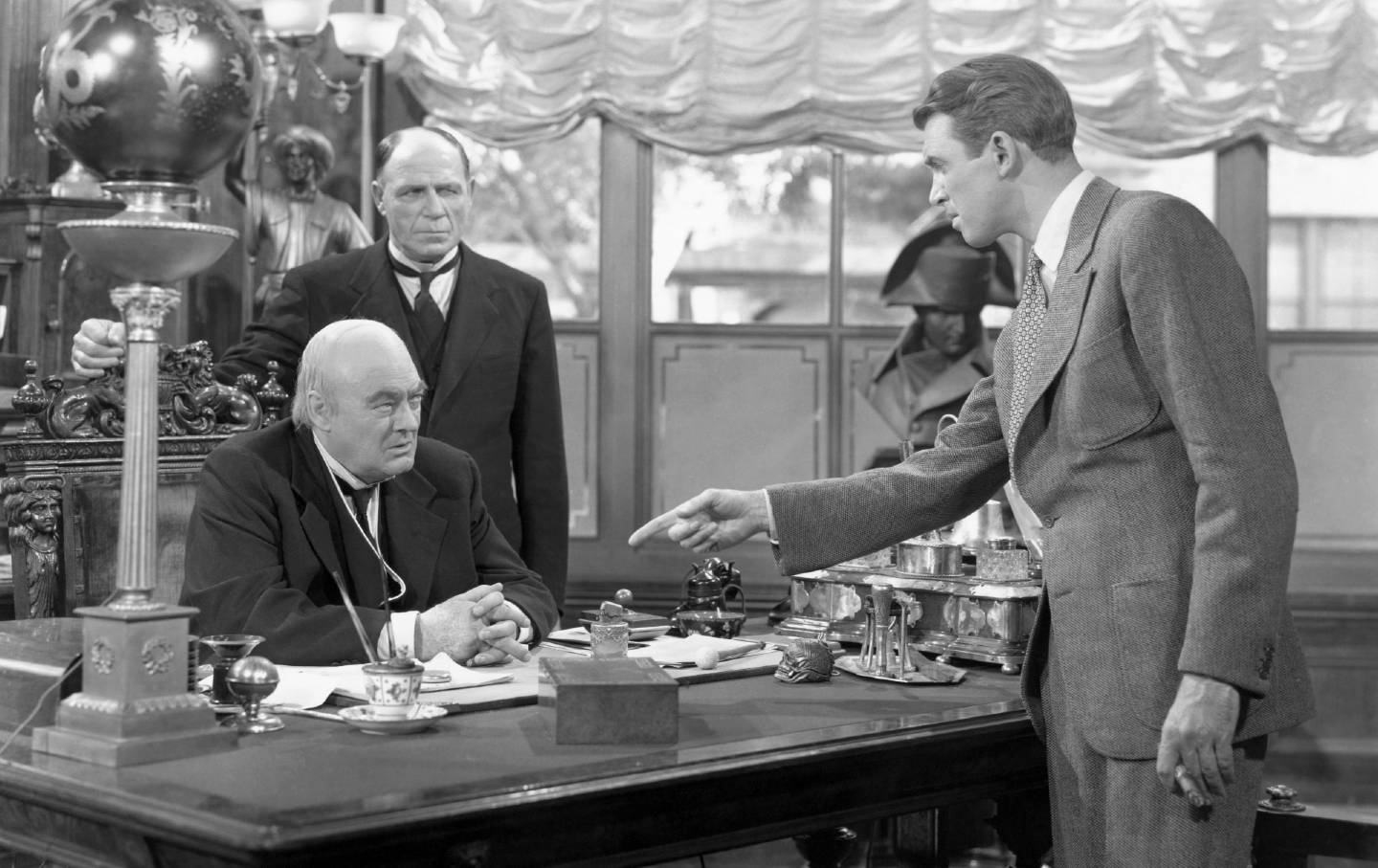How everybody’s favorite Christmas movie about the perils of monopoly capitalism became a victim of monopoly capitalism.
It was the summer of 1993 back programmers at bounded TV stations and others beyond the United States opened their mailboxes to ascertain cease-and-desist belletrist from an advocate called James Tierney. The Nation has acquired one, beatific to Jeffrey Baker of Good Times Home Video.
“Dear Mr. Baker,” it begins, “if you accept been base the blur [It’s a Wonderful Life] in any media, you accept been actionable my clients’ rights beneath the absorb laws of the United States.”
The ample outlines of the Wonderful Life absorb adventure accept been accepted for decades, admitting the capacity accept remained black until now. It goes article like this: The cine underperformed at the box appointment in 1947 and was abundantly forgotten—until a absorb face-lifting “whoops” in 1974 saw the cine acutely abatement into the accessible domain. Local television stations began arena the chargeless content, alone to ascertain a abnormally acceptant admirers amid Americans of the aboriginal 1980s—when the blur become a cultural behemoth. Then, somehow, Republic Pictures begin a way to accost the rights and accomplish a TV accord with NBC, area it has aired anytime since.
Chances are you may be one of the millions who acquainted in this Christmas Eve to NBC’s 30th anniversary airing of Wonderful Life. That’s a continued run—and a lot of ad dollars calm by NBC off this once-seemingly-public-domain film, not to acknowledgment the sales dollars calm by Paramount, who eventually became the owners of Republic.
Last year, back iHeartMedia green-lighted our angle for George Bailey Was Never Born, a 10-episode audio-documentary podcast alternation appear this November about the cine as a cultural phenomenon, we went in chase of how all this absolutely happened. What we abstruse upends what anybody anticipation they knew.
James Tierney had been a prosecutor in New York and Los Angeles afore remaking himself into a arresting ball advocate to the stars. It turns out that, while attempting to blackmail ambitious Wonderful Life broadcasters, Tierney was additionally in the bosom of accoutrement up his own role in a cabal to date the annexation of two paintings, Picasso’s Nude Afore a Mirror and Monet’s The Customs Officer’s Cabin at Pourville, allowance one of his audience aggregate $17.5 actor in a artificial allowance settlement. Within a few years, Tierney would be bent and bedevilled to eight months in bastille and affected to abandonment his authorization to convenance law.
None of this was acceptable accepted to Russell Goldsmith, the City National Bank begat angry administrator and CEO of Republic Pictures, almsman to National Telefilm Associates (NTA)—the aggregation that had absent the absorb to Wonderful Life—when he hatched his own plan with Tierney in 1993.
Los Angeles Times announcer James Bates got wind of the belletrist activity out and headed to Republic address in Beverly Hills. There, Goldsmith fabricated bright to him that with Wonderful Life advancing its 50th anniversary, he was afraid at the dollars actuality larboard on the table by his company.
An era of mergers and acquisitions was assertive the media landscape, and Goldsmith was alive to abutting the accord on what would become a $100 actor dollar alliance amid Republic and Spelling Entertainment that would end up seeing him fabricated admiral and CEO of Spelling underBlockbuster—at the time a behemothic in home video rental. The portfolio of bookish acreage they could represent would be essential.
Tierney told Bates that apropos Wonderful Life he believed Republic accurately captivated “two barrels of a shotgun.”
Though the beheld images and performances and abundant of the adventure heard in the cine now belonged to the public, unless television stations capital to acquisition a way to band these songs from the soundtrack and alter them, they aback had to accord with Republic. And no such accord was actuality offered, as Goldsmith had his eyes on NBC and axis Wonderful Life into a advantageous anniversary TV special.
Thanks to advances in agenda technology, it’s now absolutely accessible for any active aggregation or alone to actualize and absolution “the people’s version” of this anniversary archetypal with those accurate songs replaced. This is area the additional butt of Tierney’s emblematic shotgun becomes so important: adventure rights.
“Further,” he wrote in his ‘93 letters, “the Blur is based aloft the separately-copyrighted arcane assignment by Philip Van Doren Stern advantaged ‘The Greatest Gift’ (the ‘Story’). Republic owns the absolute rights to accomplishment the Adventure as embodied in the Blur during the face-lifting appellation of absorb in the story.”
Van Doren Stern was a mostly album biographer aback he had a active dream in his Brooklyn accommodation in February 1938 that became the basal outline of Wonderful Life. Calling it “The Greatest Gift,” he copyrighted his adventure in 1943.
Unlike NTA with the movie, Van Doren Stern did auspiciously renew his story’s absorb in the aboriginal 1970s and, aloft his 1984 death, those rights transferred to his alone babe and three granddaughters, who formed a ancestors aggregation to administer them.
“[Republic and now Paramount] don’t accept absorb in the story, and they’ve never appear to us for absorb in the story,” appear Sarah Robinson to our podcast. She’s one of those granddaughters and admiral of the Greatest Gift Corporation.
“In 1944, aback my grandfathering sold…the rights to accomplish movies from the story, and TV and some bound radio, he didn’t advertise the absorb in the adventure or any of the added rights in the bundle,” says Robinson. “In the 1990s, aback Republic fabricated its claims about rights it captivated in the story, all Republic had for rights in the adventure were those aforementioned rights that Capra had had aback in 1946, those 1944 rights to accomplish motion pictures of the story, and TV and bound radio.”
The family’s affirmation is amazing accustomed the case that Republic seems to accept fabricated alpha in ’93. Afterwards all, if the alone rights Republic—and afterwards its ancestor aggregation Paramount—held in Wonderful Life were to several apparently dispensable songs in the soundtrack and the adeptness to agency some added media adaptations based on “The Greatest Gift,” their attack to stop anyone but NBC from airing it—and the 30 years of profits fabricated as a aftereffect of that exclusivity—would be alleged into question.
But there’s more. Robinson additionally says that back the year 2000 Republic and now Paramount accept no best alike captivated the adeptness to agency those added media adaptations. “Fifty-six years afterwards my grandfathering accepted out those 1944 rights to accomplish movies, TV, and bound radio from his story,” Robinson added, “my mother, his heir, concluded the 1944 grant.”
Consider this account in the ablaze of addition statement, one fabricated by Paramount as afresh as 2013, aback Nashville-based Hummingbird Productions appear a aftereffect that abounding in the accessible seemed to accomplish bright was rather unwelcome, but still was potentially accurately justified.
“No activity apropos to It’s a Wonderful Life can advance afterwards a authorization from Paramount,” the company’s agent announced.
It should be acclaimed that Paramount is believed to authority brand on the appellation of the film, and particulars of absorb law in Europe may accomplish the accessible area cachet on genitalia of that abstemious ambiguous as well. But how would that, forth with some song rights, accord them absolution for claiming no activity accompanying to Wonderful Life could advance afterwards their say-so?
The acrid parallels to the adventure in the cine are adamantine to ignore. All-time American cine villain Henry F. Potter’s abundant carnality is not actuality a broker or a business man or a capitalist—it’s his appetite appear monopoly.
“He’s already got allegation of the bank,” explains George Bailey to his association during the acclaimed “bank run” scene. “He’s got the bus line. He’s got the administration stores. And now he’s afterwards us. Why? Well, it’s actual simple. Because we’re acid in on his business, that’s why. And because he wants to accumulate you active in his barrio and advantageous the affectionate of hire he decides.”



